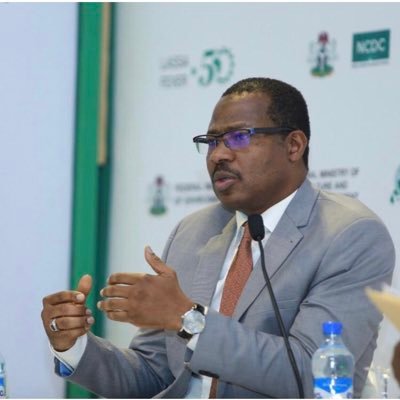Dr Faisal Shuaib, the Executive Director of National Primary Health Care Development Agency (NPHCDA) on Tuesday hinted that, once these vaccines are made equitably available to all Nigerians, then we would need to have a frank discussion about justice, fairness and liberty that exist around vaccine hesitancy.
While adding that, if some individuals refuse to take the vaccine, hence endangering those who have or those who could not due to medical exemptions, then we have to apply the basic rule of law which stipulates that your human right stops where mine begins. So, you have a right to refuse vaccines, but you do not have the right to endanger the health of others.
The Executive Director gave this hint at a press conference to update Nigerians on the progress of COVID-19 vaccination in Nigeria, saying, the Presidential Steering Committee and the Federal Ministry of Health is exploring ways of making vaccines more available to all Nigerians including Federal Civil Servants and Corporate entities.
He, however , assured Nigerians that the Federal Government is very alert on the safety and efficacy of the various range of vaccines we are using in the country, and that is why we are not compromising on any component of our vaccine logistics at Federal and state levels.
He also appealed to all health workers to remain steadfast in discharging their professional responsibility to Nigerians. The Federal government is working hard and supporting the states in ensuring that Nigerians are protected against COVID-19. This is a collective fight in which we all have responsibility as Nigerians to protect ourselves, our loved ones and our community.
He hinted that evidence of vaccination against COVID-19 is now mandatory for all pilgrims to the holy cities of Saudi Arabia and Jerusalem.
His words; “I therefore urge adherents of both religions who are planning to perform pilgrimage next year or in the future, to get vaccinated now to avoid any delays. This is also to bring to our attention, that as the COVID-19 vaccines become available worldwide, some countries have made vaccination a requirement to gain access to their country.
“Fellow Nigerians, the COVID-19 vaccines are available in all states across the country. We urge all eligible Nigerians to take advantage of its availability and get vaccinated.
“As you get vaccinated, please remember to continue to wear your face masks, observe hand hygiene, observe physical distancing until we achieve herd immunity. Also remember to convince your loved ones, friends and colleagues that COVID-19 vaccines are safe and effective.”
Similarly , Dr Walter Kazadi Mulombo, the World Health Organization (WHO) Country Representative stated that, WHO has called for a moratorium on boosters until at least the end of September, to enable at least 10% of the population of every country to be vaccinated.
While adding that , “The reason for this call is, vaccine injustice is a shame on all humanity and if we don’t tackle it together, we will prolong the acute stage of this pandemic for years when it could be over in a matter of months; In Africa, the third wave appears to have stabilized but the number of new cases is still very high with almost 248 000 reported in the past week; The trend we see is that each new wave strikes Africa faster and harder, reaching a higher number of new cases more rapidly than the previous wave. This puts an increasing strain on already stretched health facilities and health workers.
“The good news is that, increasing vaccine supplies raise hopes that the continent will meet the target of vaccinating 10% of the population by the end of September; Equitable access to safe and effective vaccines is critical to ending the COVID-19 pandemic, so it is hugely encouraging to see vaccines listed for emergency use by WHO being available for use in Nigeria”.
While commenting on what point would WHO reconsider its position on booster doses, Mulombo said that, “WHO is looking carefully at the outcome, which is of most relevance from a public health perspective, that is the severe disease, hospitalization and death outcome.
“The second consideration is the consistency of the findings. Acting on a single study is just not a sound policy basis. So, we are including the entirety of the evidence; and the third [consideration] is around the issue of the risk groups. Recommendations around the use of booster doses would very much be tailored to risk groups which may experience some change in the performance of the vaccines over a period”, he added.
Meanwhile, the UNICEF Nigeria Country Representative, Peter Hawkins has urged Nigerians to take their second doze of the COVID-19 vaccine to be fully protected.
Commending states like Lagos, Kastina who ensured that about 60 to 70 thousand people are vaccinated every day and the need to push it up, while calling on other states to emulate so that more people can be vaccinated.
He, however, encouraged health workers to take routine immunization seriously to protect thousands of children from being infected and keep them safe and stronger.

